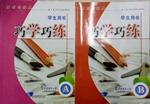ÌâÄ¿ÄÚÈÝ
ÔĶÁÀí½â
Five¡four¡there¡two¡one
¡¡¡¡A rocket launch count down, a common sound in the 1960s. But this was not just another launch. It was the beginning of a historic event. It was the countdown for Apollo ¢ò, the first flight that would carry man to the first landing on the moon. The ground shook as the huge Saturn V rocket moved slowly up into the sky. It rose perfectly. Someone on the launch crew spoke the words ¡°Good luck¡±and ¡°Godspeed¡±. I'm Jack Whistler. Today Stan Busbee and I will tell the story of flight of Apollo ¢ò in July, 1969.
¡¡¡¡In the spacecraft at the top of the speeding rocket were 3 American astronauts, whose names soon would be known around the world: Neil Armstrong, Edwin Aldrin, and Michael Collins. Neil Armstrong was the commander of the spacecraft. e was a test pilot. He had flown earlier on one of the 2 -man Gemini space flights. Armstrong was a calm person, a man who talked very little. Edwin Buzz Aldrin was the pilot of the moon lander vehicle. The astronauts gave it the name Eagle. Aldrin had flown on the last of the Gemini flights. He also was a quiet man, except twenty talked about space. Michael Collins was the pilot of the command module vehicle Columbia. He also had made a Gemini flight. He would wait in orbit around the moon as Armstrong and Aldrin landed and explored the surface. Collins was very popular and always ready with a smile.
1£®This passage mainly deals with ________.
[¡¡¡¡]
A£®the countdown for Apollo ¢ò and a brief introduction of the astronauts related
B£®the personality of the astronauts
C£®the flight of Apollo ¢ò
D£®the first landing on the moon
2£®The word ¡°Godspeed¡±means ________.
[¡¡¡¡]
|
A£®God, be quick |
B£®May God bless us |
|
C£®good speed |
D£®speed up |
3£®Who of the follwing was not in the aircraft?
[¡¡¡¡]
|
A£®Jack Whister |
|
B£®Neil Armstrong |
|
C£®Edwin Aldrin |
|
D£®Michael Collins |
4£®The word¡°twenty¡±in the second paragraph ________.
[¡¡¡¡]
A£®is but a number
B£®means¡°a lot¡±C. means¡°seldom¡±D. means¡°a little¡±
5£®Which of the following statements is true?
[¡¡¡¡]
A£®Edwin was the commander of the spacecraft.
B£®Armstrong was very popular and always ready with a smile.
C£®Eagle was the name of the command module.
D£®Neil had flown earlier on one of the 2-man Gemini space flights.

 ÇÉѧÇÉÁ·ÏµÁдð°¸
ÇÉѧÇÉÁ·ÏµÁдð°¸ÔĶÁÀí½â
Five¡four¡there¡two¡one
¡¡¡¡A rocket launch count down, a common sound in the 1960s. But this was not just another launch. It was the beginning of a historic event. It was the countdown for Apollo ¢ò, the first flight that would carry man to the first landing on the moon. The ground shook as the huge Saturn V rocket moved slowly up into the sky. It rose perfectly. Someone on the launch crew spoke the words ¡°Good luck¡±and ¡°Godspeed¡±. I'm Jack Whistler. Today Stan Busbee and I will tell the story of flight of Apollo ¢ò in July, 1969.
¡¡¡¡In the spacecraft at the top of the speeding rocket were 3 American astronauts, whose names soon would be known around the world: Neil Armstrong, Edwin Aldrin, and Michael Collins. Neil Armstrong was the commander of the spacecraft. e was a test pilot. He had flown earlier on one of the 2 -man Gemini space flights. Armstrong was a calm person, a man who talked very little. Edwin Buzz Aldrin was the pilot of the moon lander vehicle. The astronauts gave it the name Eagle. Aldrin had flown on the last of the Gemini flights. He also was a quiet man, except twenty talked about space. Michael Collins was the pilot of the command module vehicle Columbia. He also had made a Gemini flight. He would wait in orbit around the moon as Armstrong and Aldrin landed and explored the surface. Collins was very popular and always ready with a smile.
1£®This passage mainly deals with ________.
[¡¡¡¡]
A£®the countdown for Apollo ¢ò and a brief introduction of the astronauts related
B£®the personality of the astronauts
C£®the flight of Apollo ¢ò
D£®the first landing on the moon
2£®The word ¡°Godspeed¡±means ________.
[¡¡¡¡]
|
A£®God, be quick |
B£®May God bless us |
|
C£®good speed |
D£®speed up |
3£®Who of the follwing was not in the aircraft?
[¡¡¡¡]
|
A£®Jack Whister |
|
B£®Neil Armstrong |
|
C£®Edwin Aldrin |
|
D£®Michael Collins |
4£®The word¡°twenty¡±in the second paragraph ________.
[¡¡¡¡]
A£®is but a number
B£®means¡°a lot¡±C. means¡°seldom¡±D. means¡°a little¡±
5£®Which of the following statements is true?
[¡¡¡¡]
A£®Edwin was the commander of the spacecraft.
B£®Armstrong was very popular and always ready with a smile.
C£®Eagle was the name of the command module.
D£®Neil had flown earlier on one of the 2-man Gemini space flights.